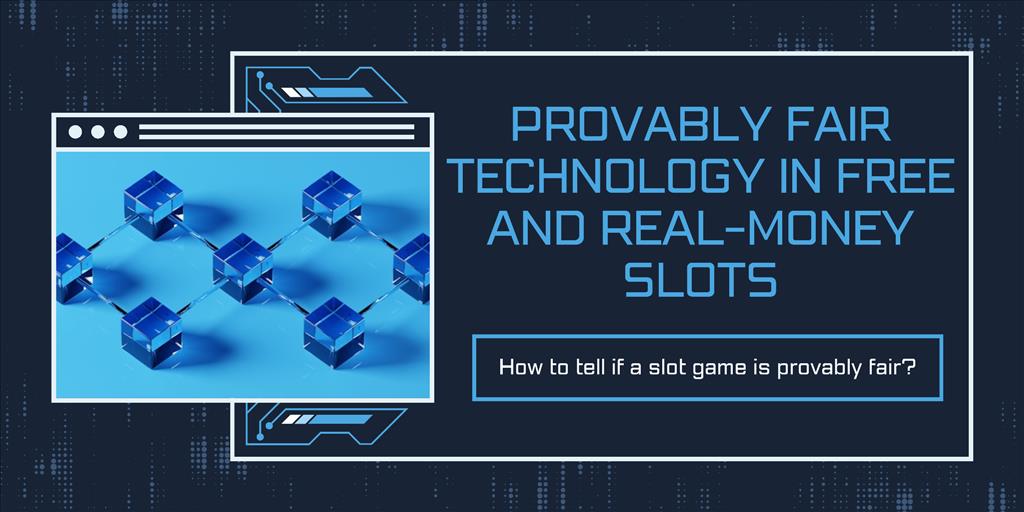
Why ‘Provably Fair’ Matters — Even in Free-to-Play Slots
(MENAFN- Local Profy LLC)
Even players who never deposit a cent now expect online slot games to be transparent. Free-to-play slots often operate with zero oversight, yet they attract massive daily traffic, especially in countries where gambling is banned or limited.
Most free slot games aren’t built to deceive, but they also aren’t built to prove anything. Users can't tell whether the reels they’re spinning follow fair logic or if outcomes are being shaped to keep them engaged for longer periods. The solution to that uncertainty is provable fairness — a system that allows players to verify whether every spin was truly random and unaltered.
Platforms like Clashofslots.com have picked up on this growing expectation, offering trusted free slot demos and casino reviews that consider fairness and transparency as key features, not side notes.
The Basics of Provably Fair Technology
A provably fair system uses cryptographic techniques to show that no one could have known or manipulated the outcome of a spin after it started. Common components of a provably fair system include:
- Server seed: Random string generated by the game operator and hashed before the game starts
- Client seed: Value supplied by the player, often customizable
- Nonce: Number that increments with each spin to keep each result unique
- Hash function: Algorithm (such as SHA-256) used to generate a hash from the server seed
- Verification tool: Option for users to re-calculate and confirm the result using the combined data
The server creates a hidden hash of a random seed before the game begins. The client (or user) provides their own random seed. When the round ends, the server reveals the seed, and the two values are combined to generate the result. Anyone can then recalculate the process and confirm that the outcome matches what should have been produced.
Some games also let players change the client seed to make sure it isn't static. Others publish past seeds and results for reference. In either case, the goal is to provide concrete, checkable proof that each spin was legitimate.
How to Tell If a Slot Game is Provably Fair
Many players don’t know what to look for when it comes to verifying a game’s fairness, especially in free-to-play environments. While some platforms claim to offer random outcomes, few actually implement systems that let users check the math themselves.
This section gives players a clear, practical framework to recognize whether a game is provably fair or just marketing the idea of fairness without technical backing. Here's a short guide to identifying games that meet that standard:
|
What to Look For |
What It Tells You |
|
Server seed revealed after spin |
The outcome was pre-committed and can’t be changed |
|
Customizable client seed |
The player helps shape the result, adding randomness |
|
Nonce per spin |
Each round is unique, not reused |
|
Result checker or hash viewer |
You can verify that the spin matched the input data |
Why It Matters for Free Games
Many users choose free slots as a trial run before moving on to real-money platforms. If the free version doesn't reflect the odds and mechanics of the actual game, the whole purpose is defeated. And even for users who never plan to gamble, a lack of fairness leads to frustration. It turns the game into a loop of false hope, especially if developers tweak outcomes based on session length, win rate, or time spent in the app.
Even without cash prizes, people still care about winning. If a user sees the same pattern of near-misses or extended losing streaks, suspicion grows. Over time, that leads to disengagement. A provably fair structure doesn’t just prove integrity — it gives users a reason to keep trusting the product.
Technical Simplicity and User Trust
One common excuse among developers is that free-to-play users don’t care about the math behind fairness. In reality, they don’t need to. Just as users expect secure connections without reading encryption protocols, slot players can benefit from provable fairness even if they never check a seed value.
The important thing is that the system is open, and results are traceable. The knowledge that the game can be verified is enough to deter manipulation. It changes how users think about the product and builds a level of trust that’s hard to replicate through marketing or user interface design alone.
Provably fair systems are also not technically demanding to implement. The most common algorithms, like SHA-256, are widely available and well-documented. Developers can integrate them into the backend without rebuilding the game logic. They simply need to generate seeds, publish hashes, and provide a way for users to access past spin data. There’s no need for blockchain involvement unless the platform wants to use crypto transactions or decentralized hosting.
Why Transparency Will Keep Scaling
Crypto casinos were early adopters of provable fairness, not because it was trendy, but because they had no regulatory fallback. Their players were skeptical by default, and these platforms needed a way to prove that every outcome was legitimate. Over time, that same expectation has started to reach into traditional and even free gaming environments.
Users have become more informed. Platforms that avoid transparency now look suspicious, even if they aren’t doing anything wrong. In a space where reputation spreads quickly, especially on forums and review sites, failing to offer that proof can lead to loss of traffic and credibility. And in markets where regulation is minimal, the shift towards transparency might be the only real guarantee of integrity players ever get.
MENAFN21082025005706012513ID1109957607
Legal Disclaimer:
MENAFN provides the
information “as is” without warranty of any kind. We do not accept
any responsibility or liability for the accuracy, content, images,
videos, licenses, completeness, legality, or reliability of the information
contained in this article. If you have any complaints or copyright
issues related to this article, kindly contact the provider above.


















Comments
No comment